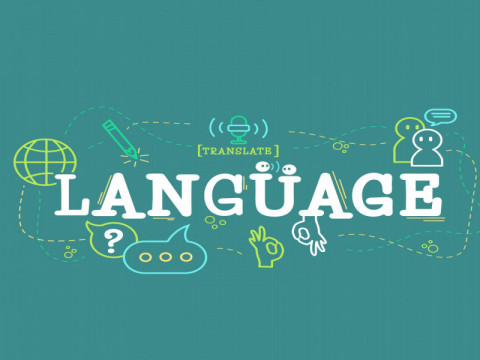Adverbs
One of the most easiest topics of English grammar is Adverbs. They are easy to understand and easy to use in sentences while writing and speaking. If you haven’t had a chance of know what these are, read the article and improve your sentence formation skills.

An adverb is a word that describes a verb. Adverbs are also used to modify the meaning of an adjective, a verb, a preposition, a sentence and also a clause. By using the different kinds of adverbs we add more information to the sentences formed. Adverb is a part of a speech and expresses the manner, time, place, frequency, degree.
For example, The train is moving.
This sentence does not give us any information about the train apart from that it is moving. But if we say,
For example, The train is moving slowly.
This sentence gives better information about the train and the situation.
Types of Adverbs:
Adverb of Time:
Whenever you want to add an information of “when” to your verb, the adverb of time is used. We can say that the adverb of time can show the time or the moment of the task being done. For example: She will reach tomorrow.
So, if you ask when, and if you get an answer of a specific time, then you know you are adding an adverb of time to your sentence.
Adverb of Place:
Whenever you want to add an information of “where” to your verb, the adverb of place is used. Adverb of place shows where the task is being done.
For example: She will sit there.
So when you ask where, and if you get an answer of a specific place, you know you are using the adverb of place.
Adverb of Frequency:
Words that give answers to “how often” are considered as adverbs of frequency. This adverb shows the frequency of the task done.
For example: I walk home everyday from school.
So here, the adverb is everyday.
Adverb of Manner:
Whenever you want to add information regarding “how” or “in what way”, the adverb of manner will be used and shows the form with which the task has to be done.
For example: She sings beautifully.
When someone asks how she sings and you reply beautifully, it is an adverb of manner.
Adverb of Degree:
Whenever you want to answer something that starts with “how much” or “to what degree”, the adverb of degree is used.
For example: She is extremely talented.
Here the word extremely shows the degree.
Adverb of Reason:
Whenever you answer something starting with the question “why”, the adverb of reason will be an answer.
For example: I ate it because I was hungry.
The word because acts as the adverb of reason that shows “why”.
There also two more types of adverbs.
Interrogative adverbs
Whenever you ask a question and the question word is used as an adverb, you are using interrogation adverbs. They are always placed in the beginning of the sentence.
For example: Why did you go?
Here the question why is used as an adverb and hence is called an interrogative adverb.
Relative adverbs
Whenever you want to connect or relate two sentences, use relative adverbs. These adverbs are, where, what and why.
For example: They met when no one was around them.
Here, the word when connected They met and no one was around them.
These are the different types of adverbs which can be used to make your sentences even more specific and informative.
Explore
Related Articles

Homophones vs Homographs vs Homonyms
Some parts of grammar in English is very difficult to understand. This is resolved only when you develop a habit of reading. Read the article and try…
Continue reading
Irregular Verbs
Irregular verbs are used more than the regular verbs in English language. Understanding these verbs might seem difficult, but all you need is some…
Continue reading
Parts of speech
Learning parts of speech helps you to form better sentences and improves overall language learning. Read the article and try to make changes in your…
Continue readingMore Articles

Developed nations and languages
There is a strong narrative on English among India's financially and educationally elite classes. The narrative is that English is the only way to…
Continue reading
Important words and phrases in Marathi (For beginners)
Learning a new language can be difficult. But with constant practice and learning it can be easy. Starting to talk in the language you are trying to…
Continue reading
Tips to improve your spellings
Writing in English is as important as speaking. To learn to write correctly might seem like a difficult task. There are always some tips that you need…
Continue reading
Active Voice and Passive Voice
This article will help you understand the difference between active and passive voice and make your written and spoken skills of language better.
Continue reading
Difference between Voice and Speech in Grammar
English learners may get confused between the use of these two topics and end up making mistakes. Read this short article to help yourself and improve…
Continue reading
Direct and Indirect speech
Knowing how to use direct and indirect speech in English is considered important in spoken English. Read the article below and understand how to use…
Continue reading
Types of nouns
Nouns are the largest group of words in any language. Understanding them and using them correctly while learning the language is considered very…
Continue reading
Ways to improve your spoken English skills
Improving spoken languages might seem as a challenge. But, with proper guidance and tips, it is not too difficult.
Continue reading